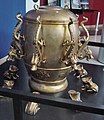Portal:Science
| Main page | Main topics & Categories | Related portals & WikiProjects | Things you can do |
Science portal
Science is a rigorous, systematic endeavor that builds and organizes knowledge in the form of testable explanations and predictions about the world. Modern science is typically divided into three major branches: natural sciences (e.g., physics, chemistry, and biology), which study the physical world; the social sciences (e.g., economics, psychology, and sociology), which study individuals and societies; and the formal sciences (e.g., logic, mathematics, and theoretical computer science), which study formal systems, governed by axioms and rules. There is disagreement whether the formal sciences are science disciplines, because they do not rely on empirical evidence. Applied sciences are disciplines that use scientific knowledge for practical purposes, such as in engineering and medicine.
The history of scientific discipline spans the majority of the historical record, with the earliest written records of identifiable predecessors to modern science dating to Bronze Age Egypt and Mesopotamia from around 3000 to 1200 BCE. Their contributions to mathematics, astronomy, and medicine entered and shaped the Greek natural philosophy of classical antiquity, whereby formal attempts were made to provide explanations of events in the physical world based on natural causes, while further advancements, including the introduction of the Hindu–Arabic numeral system, were made during the Golden Age of India. Scientific research deteriorated in these regions after the fall of the Western Roman Empire during the early middle ages (400 to 1000 CE), but in the Medieval renaissances (Carolingian Renaissance, Ottonian Renaissance and the Renaissance of the 12th century) scholarship flourished again. Some Greek manuscripts lost in Western Europe were preserved and expanded upon in the Middle East during the Islamic Golden Age and later by the efforts of Byzantine Greek scholars who brought Greek manuscripts from the dying Byzantine Empire to Western Europe in the Renaissance.
The recovery and assimilation of Greek works and Islamic inquiries into Western Europe from the 10th to 13th century revived "natural philosophy", which was later transformed by the Scientific Revolution that began in the 16th century as new ideas and discoveries departed from previous Greek conceptions and traditions. The scientific method soon played a greater role in knowledge creation and it was not until the 19th century that many of the institutional and professional features of science began to take shape, along with the changing of "natural philosophy" to "natural science".
New knowledge in science is advanced by research from scientists who are motivated by curiosity about the world and a desire to solve problems. Contemporary scientific research is highly collaborative and is usually done by teams in academic and research institutions, government agencies, and companies. The practical impact of their work has led to the emergence of science policies that seek to influence the scientific enterprise by prioritizing the ethical and moral development of commercial products, armaments, health care, public infrastructure, and environmental protection.
Here is the brief Outline of Science:
| Science | |||
|---|---|---|---|
| Formal Science | Empirical Science | ||
| Natural Science | Social Science | ||
| Foundation | Logic, Pure Mathematics | Physics, Chemistry, Biology, Earth Science, Astronomy | Economics, Political Science, Sociology, Psychology |
| Application | Computer Science, Statistics, Applied Mathematics | Engineering, Medicine, Agricultural Science, Pharmacy | Business Administration, Law, Anthropology, Archaeology |
Featured article -
Selected image
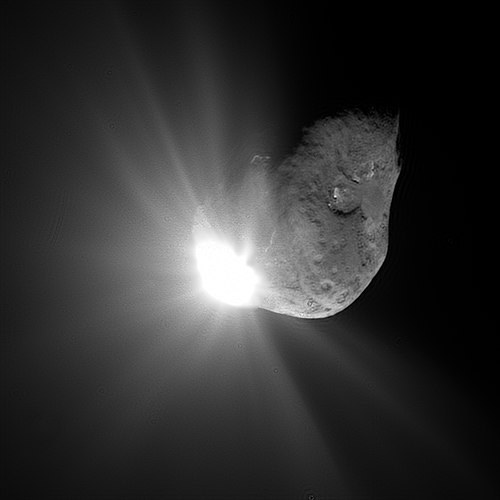
Selected biography
However, the achievements of the writers of the Hippocratic Corpus, the practitioners of Hippocratic medicine, and the actions of Hippocrates himself were often conflated; thus very little is known about what Hippocrates actually thought, wrote, and did. Hippocrates is commonly portrayed as the paragon of the ancient physician and credited with coining the Hippocratic Oath, which is still relevant and in use today. He is also credited with greatly advancing the systematic study of clinical medicine, summing up the medical knowledge of previous schools, and prescribing practices for physicians through the Hippocratic Corpus and other works.
More did you know...
- ...that space artist Jon Lomberg (artwork pictured) was Carl Sagan's principal artistic collaborator on many projects such as Cosmos and the Voyager Golden Record?
- ...that NASA astronaut Stephen Robinson has logged 497 hours in space?
- ...that Othniel Charles Marsh named two species of the dinosaur Coelurus from the same quarry, not knowing that the bones belonged to the same skeleton?
- ...that the type specimen of Dromicosuchus had damage to its jaw and neck that may have been inflicted by the teeth of the large carnivore it was found underneath?
- ...that the scientific name of the common Australian garden fungus Aseroë rubra means 'red disgusting juice'?
Topics and categories
Science News
- 23 October 2023 – 2023 in arthropod paleontology
- A new species of prehistoric millipede named Lauravolsella willemeni is discovered in the Netherlands. (NOS)
- 4 October 2023 –
- Moungi Bawendi, Louis E. Brus, and Alexey Ekimov are awarded the Nobel Prize in Chemistry for their work on quantum dots. (BBC News)
- 3 October 2023 –
- Pierre Agostini, Ferenc Krausz, and Anne L'Huillier are awarded the Nobel Prize in Physics for experimental methods that generate attosecond pulses of light for the study of electron dynamics in matter. (The Guardian)
- 6 September 2023 – 2023 in archosaur paleontology
- A dinosaur fossil, given the name Fujianvenator, is discovered in Fujian, China. The dinosaur has two legs and two other limbs, possibly wings, thereby giving insight into the evolution of birds. (NOS)
- 10 August 2023 –
- American spaceflight company Virgin Galactic launches its first space tourism flight, Galactic 02. Antigua and Barbudan tourists Keisha Schahaff and Anastatia Mayers become the first mother-daughter duo and first people from the Caribbean to fly to space, while Mayers also becomes the youngest woman and second youngest person to fly to space. (AFP via France 24)

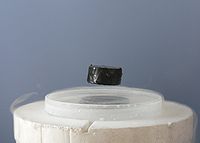


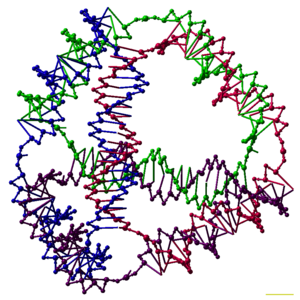
.jpg/220px-Greater_Spotted_Woodpecker_(41554059345).jpg)


.jpg/220px-Oceanic_Whitetip_Shark_(cropped).jpg)
.jpg/220px-Dendroaspis_polylepis_(14).jpg)

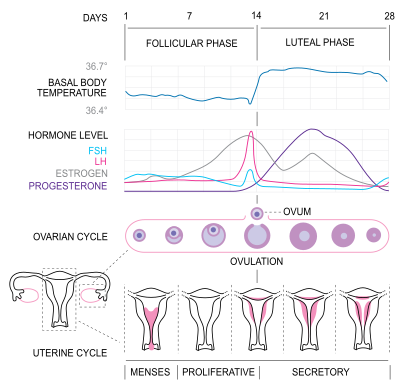





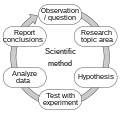

.jpeg/120px-Painting_of_Volta_by_Bertini_(photo).jpeg)
.png/85px-Albert_Einstein_(Nobel).png)

_Venenbild.jpg/120px-William_Harvey_(1578-1657)_Venenbild.jpg)


















.jpg/80px-Sceptical_chymist_1661_Boyle_Title_page_AQ18_(3).jpg)





.jpg/120px-Template_from_Crick_and_Watson’s_DNA_molecular_model%2C_1953._(9660573227).jpg)



.jpg/105px-Galileo_Galilei_by_Ottavio_Leoni_Marucelliana_(cropped).jpg)


